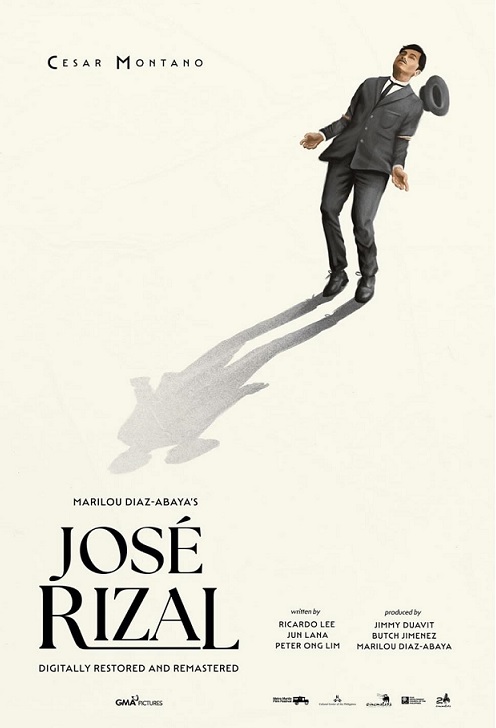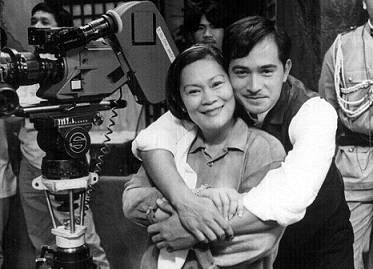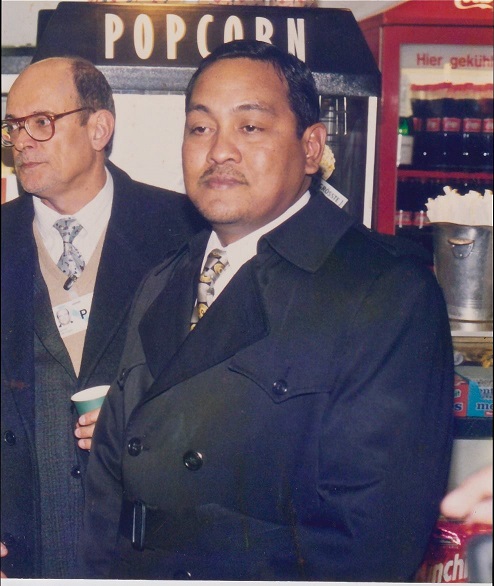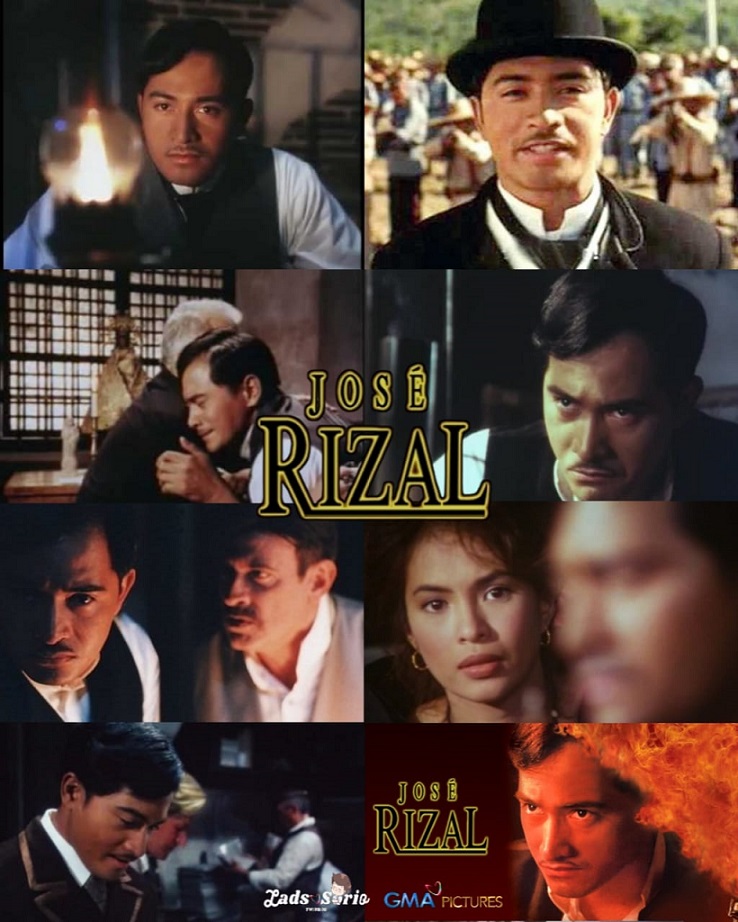One of the exciting highlights of Cinemalaya 2024 is the screening of the remastered version of the 1998 landmark film Jose Rizal by National Artist for Film Marilou Diaz-Abaya.
The film made history both as a critical and box office triumph.

For the record, it won a total of 17 awards during the 1998 Metro Manila Film Festival namely best picture, best actor (Cesar Montano)), best director (Marilou Diaz Abaya), best supporting actor (Jaime Fabregas), best supporting actress (Gloria Diaz) best screenplay (Ricky Lee, June Lana, Peter Ong Lim), best cinematography (Rody Lacap), best production design (Leo Abaya) and best musical score (Nonong Buencamino) plus the Gatpuno Antonio J. Villegas Cultural Awards, among others.
The monumental Jose Rizal produced by GMA Films transformed Abaya as a blockbuster film director followed by equally successful Muro-Ami and Bagong Buwan.
The film went on to become one of the most awarded films from industry and critics’ award-giving bodies and one of the most commercially successful films of the decade.
The film stars Cesar Montano in the title role alongside Chin Chin Gutierrez as Josephine Bracken, Mickey Ferriols as Leonor Rivera including Ronnie Lazaro, Gloria Diaz, Gardo Versoza, and Pen Medina, among others.

As the film production time-table showed and recounted by AsianCineVision, Abaya did not easily accept the initial offer of GMA Films which wanted nothing less than the “definitive film on Rizal, worthy of a centenary, a film for ages.”
Abaya’s sons — Mark and David– were in high school at the Ateneo when news of the Rizal bio epic started spreading. They happen to be studying in Rizal’s alma mater.
Abaya’s answer to her son was no, no, no. “It was just an offer.”
Marc with his brother David sat down with his mother saying that he could not believe that his mom would turn down directing the bio on Jose Rizal, the man who also studied at Ateneo.
“What face am I gonna show in school?” Marc asked his mom desperately.
Other son David was disconsolate as well.
The filmmaker was on the brink of tears. She stood up and phoned GMA Film executive Gilberto Duavit, Jr. and told him she has decided to accept the project.
She added, “You have my son Marc to thank for. He was persistent.”
Obviously poor mother couldn’t say no to her son.
For the writing team, Abaya quickly assembled Ricky Lee, Jun Lana and Peter Ong Lim.
Discussions on how they would tackle the subject were “bloody,” according to Lee.
The strategy Abaya and his writers agreed on was a big challenge. They would write the film from the point of view of Rizal as an artist-intellectual in a web of flashbacks from his life and recreations from his novels, exploring the interconnections between his life and his works.
Preparations were extra intense.

For the lead actor playing Rizal,(Montano), Abaya herself drew up a three-month syllabus which consisted of deep immersions in history, politics, poetry, fencing, penmanship and Spanish diction.
Abaya also required her team to read or re-read the Nolin and the Fili and do independent research on Rizal’s life.
They agreed to meet every Friday to quiz and update each other.
Production designer Leo Abaya (no relation to filmmaker) and his team left no stone unturned in recreating the late 19th-century Calamba, Laguna (Rizal’s hometown).
After several advance screenings and premiere night, Jose Rizal was judged a “work of amazing achievement and stunning miscalculations.”
The consensus was that “it was amazing how Abaya and her writers managed to cram in practically all the events of primary importance in Rizal’s life — and in non-chronological order at that, and even lavishly intermingled with scenes from his novels — without getting the timeline of Rizal’s life muddled or confusing.”
As it turned out, José Rizal became one of Abaya’s most internationally seen films, invited to festivals and retrospectives from Busan to Tokyo, Madrid to Paris and Berlin, Chicago to New York.
Jose Rizal remains an engrossing film and surely the acting here was the best of Cesar Montano in the title role and Jaime Fabregas as Rizal’s lawyer.
Of Abaya’s other landmark films, it is a coincidence that GMA Films produced three of them – Sa Pusod Ng Dagat, Muro-Ami and Jose Rizal.
In her short but fruitful life, filmmaker Marilou Diaz Abaya lived and breathed music which was also an integral part of all her film output.
When Marilou Diaz-Abaya was proclaimed National Artist for Film and Broadcast Arts last June 10, 2022, she had long deserved it, having lived art and life with consummate artistry.
“How terribly sad,” celebrated pianist Cecile Licad reacted when she learned of Abaya’s death in 2012. “I will always remember the happy times and the inspiration she has given me. I will reconnect with her every time I play Chopin’s funeral sonata.”

Understandably, Abaya’s love for music translated well in most of her films.
For the musical scoring of Jose Rizal, multi-award-winning film scorer Nonong Buencamino used the services of cellist Renato Lucas and classical guitarist Lester Demetillo plus members of the PPO string sections and an eight-member male choir. “I rented the old UP Theater for two days and brought the studio recording equipment there. I also composed Agnus Dei, the piece for the all-male choir.”
The music he didn’t compose in Jose Rizal were the Marcha de Cadiz which research showed was the actual music played during Rizal’s execution and the Christmas song sang by Fabregas and the ballroom dance which came from a Spanish zarzuela.
The remastered classic film Jose Rizal will be screened on Wednesday, Aug. 7, 2024, at 4 p.m. at the Manila Metropolitan Theatre during the Cinemalaya Festival as “a tribute to Philippine cinema.”
The 20th edition of Cinemalaya will feature 10 short films and ten full length movies and will run from August 2 to 11 at Ayala Malls Manila Bay and at the Manila Metropolitan Theater.

